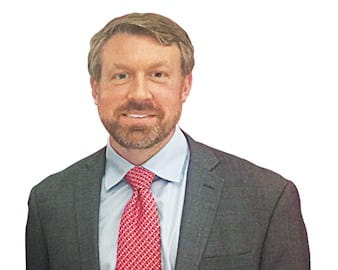
With the UK-based Grow Movement, Ryan Wagner, ’12 (EXP-17), is making gains for entrepreneurs in least-developed economies.
- By
- October 10, 2015
- Entrepreneurship

Ryan Wagner, '12 (EXP-17), is a volunteer mentor for Grow Movement, a nonprofit organization that matches business consultants from 61 countries with entrepreneurs in sub-Saharan Africa. The program’s model and its viability are the subjects of a randomized control study by Pradeep K. Chintagunta, Joseph T. and Bernice S. Lewis Distinguished Service Professor of Marketing, and his colleagues at Stanford University and London Business School. The study aims to produce evidence that virtual consultants such as Wagner make a difference in terms of employment, sales, and profits. “Demonstrating that this is an effective way of supporting entrepreneurs,” Chintagunta said, “will galvanize others to engage in this kind of work.” Wagner, a director at CDC Group, a UK government organization that invests in emerging markets, became engaged with Grow Movement in June 2012. Here he shares his mentoring experience with the organization, which recently recruited more than 600 new volunteer consultants.

I discovered Grow Movement shortly after business school. I was seeking to volunteer as a mentor and contribute toward developing economies. Grow enabled me to use knowledge gained from Booth along with my professional experience.
Having worked in private equity [Goldman Sachs, Merrill Lynch], I had some idea about the attributes of successful entrepreneurs and the elements needed to build a business. After studying several proposals, I decided to work with Martial Batangana, a 24-year-old entrepreneur in Rwanda. His ambition was to build a mobile platform that would provide agricultural advice to local farmers and connect them with regional buyers.
Batangana was highly motivated and technically savvy, but I saw that his business needed a framework—it was a matter of planning activities and organizing resources. For six months, I spent two to four hours a week, often on a weekday evening or a Sunday afternoon, communicating with him via email and Skype.
Through his deep local and industry-sector knowledge, he had identified a need in his home country. I drew on my knowledge of marketing, product commercialization, organizational management, and entrepreneurship to help him transform his idea into a commercial venture.
I’m proud to say our collaboration led to an application that was endorsed by Rwanda’s Ministry of Agriculture to make data available to more than 2 million farmers. Even though I have never met Batangana in person, we were able to build a trusted relationship. We remain in touch today. Through our exchanges I learned that communications and lines of questioning must necessarily be different from those that would be taken in the West. Entrepreneurs in developing countries may feel overwhelmed when a business mentor comes on the line from London, Hong Kong, or Chicago and says, “Here’s everything we need to work on. Let me email you a to-do list.” That list could be long and the approach can be off-putting.
Building a relationship along with setting the right pace and tone is important. In the end, the goal is to coach and empower these aspiring entrepreneurs, not simply deliver business lessons to them.

Professor Joseph L. Pagliari and Mike Kirby, ’85, discuss transformations in the REIT industry.
The State of Real-Estate Investing
Tom Jensen, ’87, went from distributing alcohol to distilling it—and explains why small-batch whiskey should be on the tip of everyone’s tongue.
Toasting the Next Generation of Craft Spirits
Scott Rockfeld, ’01, is channeling a love of sports into an appreciation for astronomy through his new children’s book series.